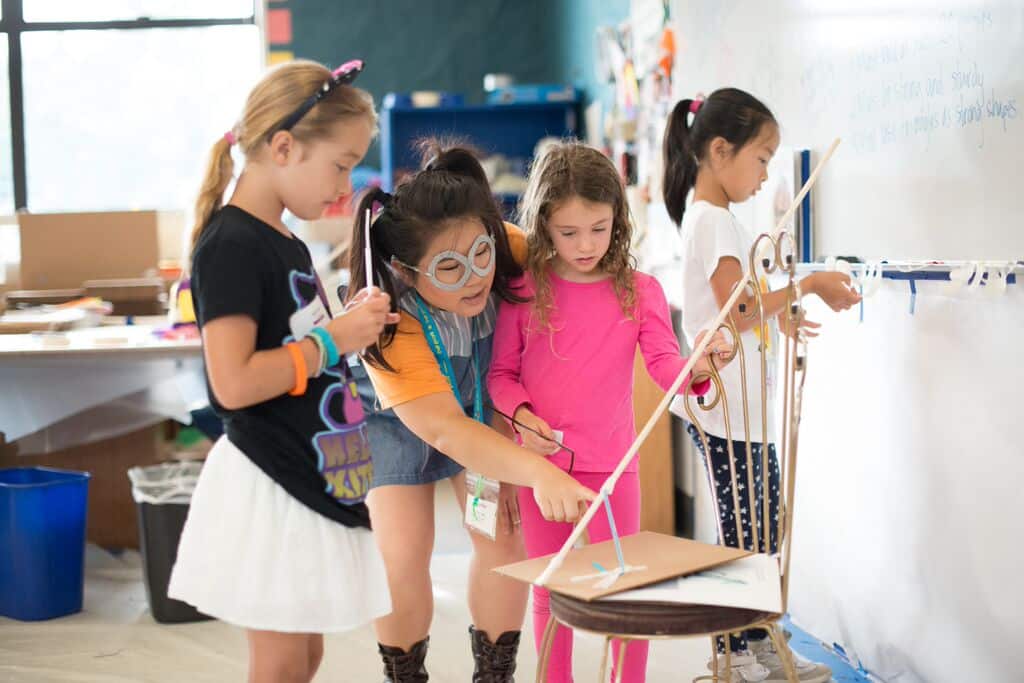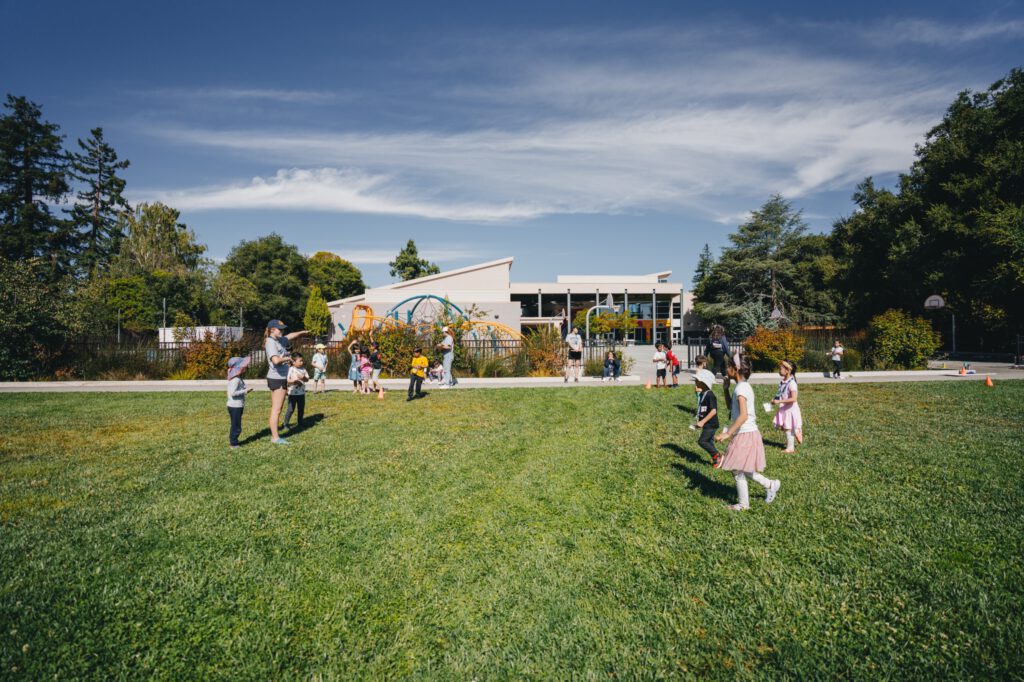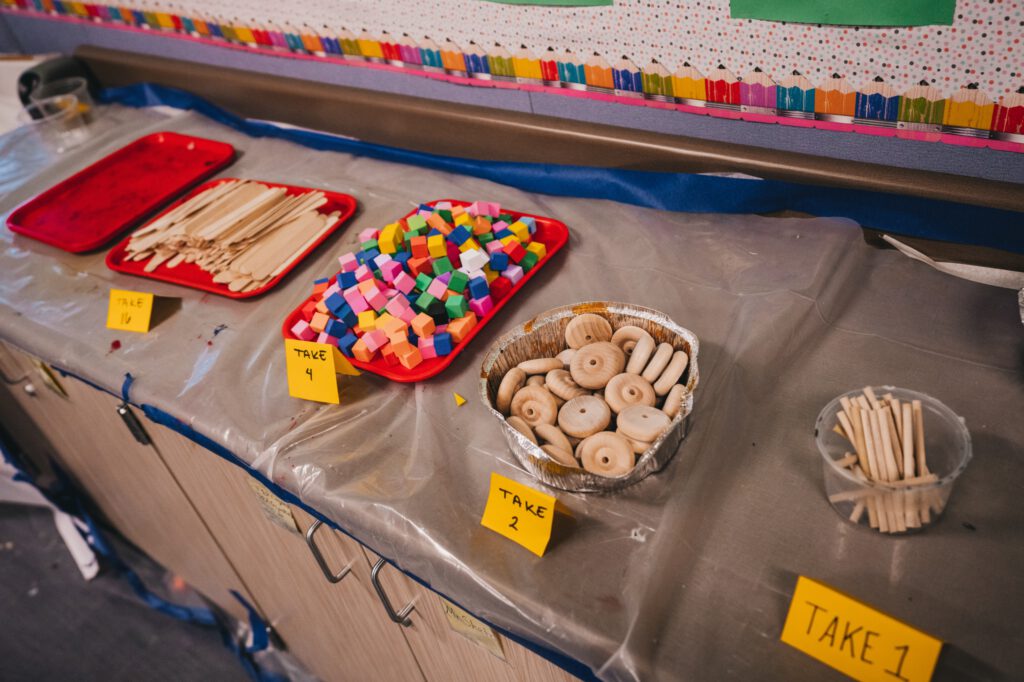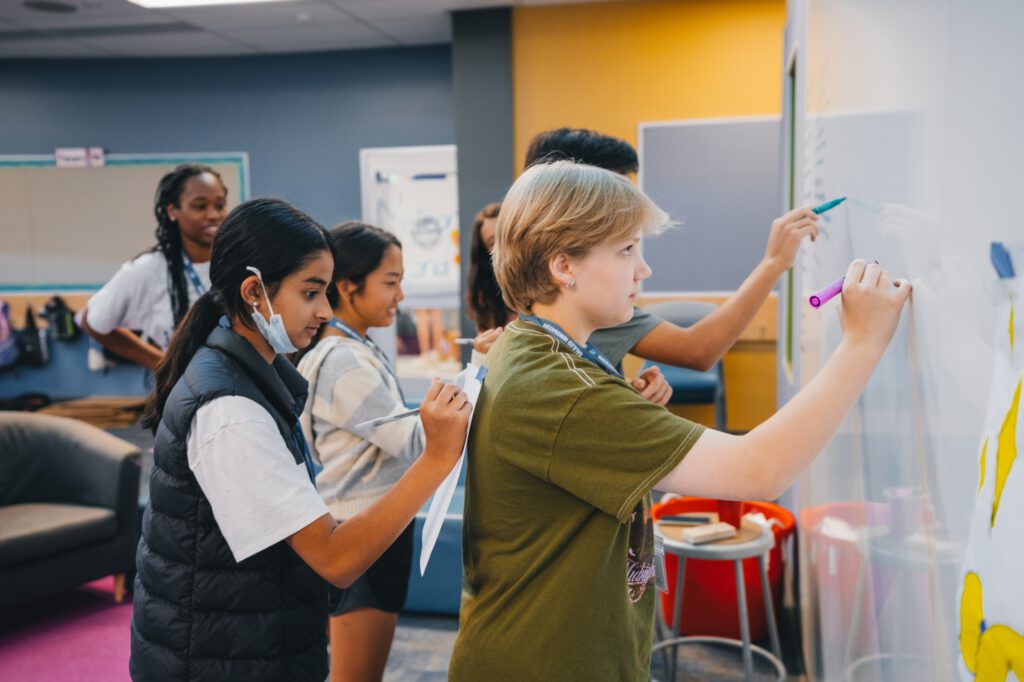Self-esteem is the foundation upon which confidence is built. In order to become a lifelong innovator, kids should feel empowered to take calculated risks, express their creativity, and collaborate with others. Those with low self-esteem often feel stuck in life, making decisions based out of fear rather than confidence. Keep reading to explore some of our best tips to build self-esteem in your kids.
Give Them Space To Grow
Parents want to raise happy, healthy kids with lots of options to create bright futures for themselves. In that pursuit, it can be easy to develop the habit of getting in takeover mode. When these moments occur, remember that you can’t—and shouldn’t—just do everything for your children. In fact, this behavior can negatively impact a child’s emotional and cognitive well-being. To raise kids with strong self-esteem and a sense of control over their surroundings, it’s important to allow them to have opportunities to make their own decisions and to choose between various options.
Kids need to be able to shrug off their safety blanket (newsflash: that’s YOU). Sure, you should be there to catch them when they fall, literally and figuratively. But they won’t always be falling, and that means positive progress. Without learning to make decisions for themselves, how else will they confidently step into their adult world unencumbered, and function independently? We’re trying to avoid a ‘Failure to Launch’ situation here.
Embrace Mistakes
Learning is often a process of trial and error. Let your young ones try new things, even when it’s inconvenient or you know their plans are likely to fail. Mistakes teach important lessons about actions and consequences. For example, say you’re driving home from a shaky violin recital. That’s an excellent opportunity to engage your child in a dialogue around how they think the recital went (chances are, they know it could have gone more smoothly) and what they can do next time to get closer to their goal (more practice, anyone?).
Additionally, kids who make mistakes, learn from them, and use those learnings to better their pursuit of a goal understand that setbacks don’t spell permanent failure. The sooner kids learn to fail in a supportive environment, the better. After all, you won’t always be on hand to advise the course of action most likely to succeed or to pick up the pieces after plans don’t quite shake out.
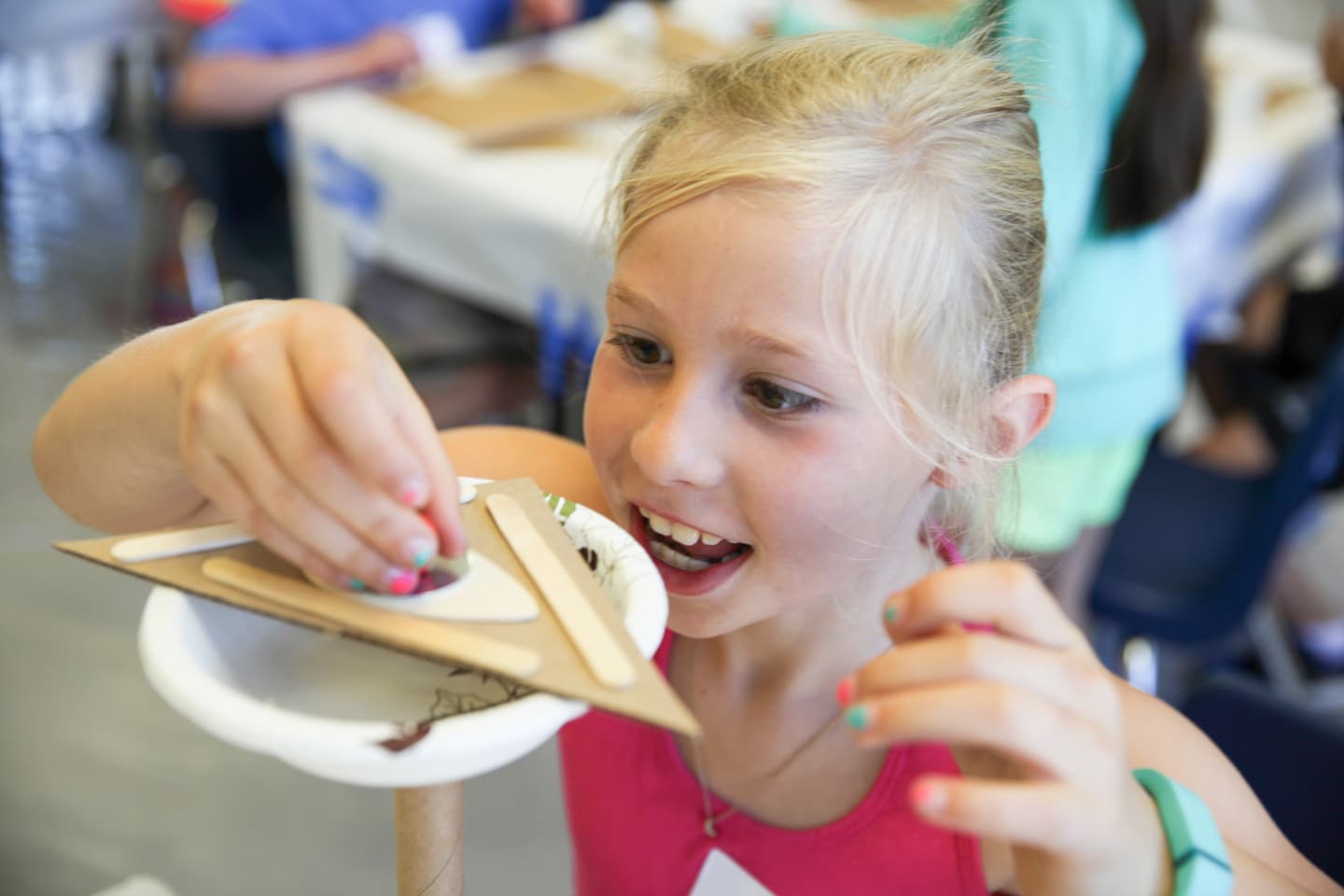
Resist Over-Praising
When children truly achieve something, they naturally feel gratified and proud of themselves. All kids deserve positive recognition for their achievements and good behavior. It feeds their craving for validation and the assurance that they’re loved and appreciated by their families.
Research shows that kids who receive plenty of positive affirmation early on in their lives are more likely to be successful later. But when you heap praise on every little thing, your words lose what would normally make them special and powerful. Motivate, but don’t render your praise meaningless.
Used carefully, words of encouragement that honor hard work and prompt reflective conversation can help foster a growth mindset in children. This change of perspective is like putting on a pair of magical glasses that helps kids see there’s room for improvement.
Avoid Unnecessary Criticism
Criticism is important, as long as it’s constructive. Remember that your words become your child’s inner voice. The best way to injure a child’s sense of pride and self-esteem is to frequently bring up the ways in which they’re disappointing you.
Just as they know when they deserve praise, kids know when they’ve been naughty enough to make you mad. Challenging boundaries is how children figure out where certain actions actually belong on the spectrum of bad behavior.
Kids are learning how to navigate a great, big world every day of their lives, and it can be very complicated at times. Imagine being put on a highway when you’ve never driven before and being told to get to a new destination. Even with GPS (aka parents), children are filled with uncertainty, and they don’t need constant criticism on top of everything else.
Inevitably, kids will embarrass you or make you question your life choices at some point. Trust us, you’re not alone. Be mindful of your child’s relative innocence, intention, and feelings before unleashing the tough love. Too much praise is silly. Too much criticism is harmful.
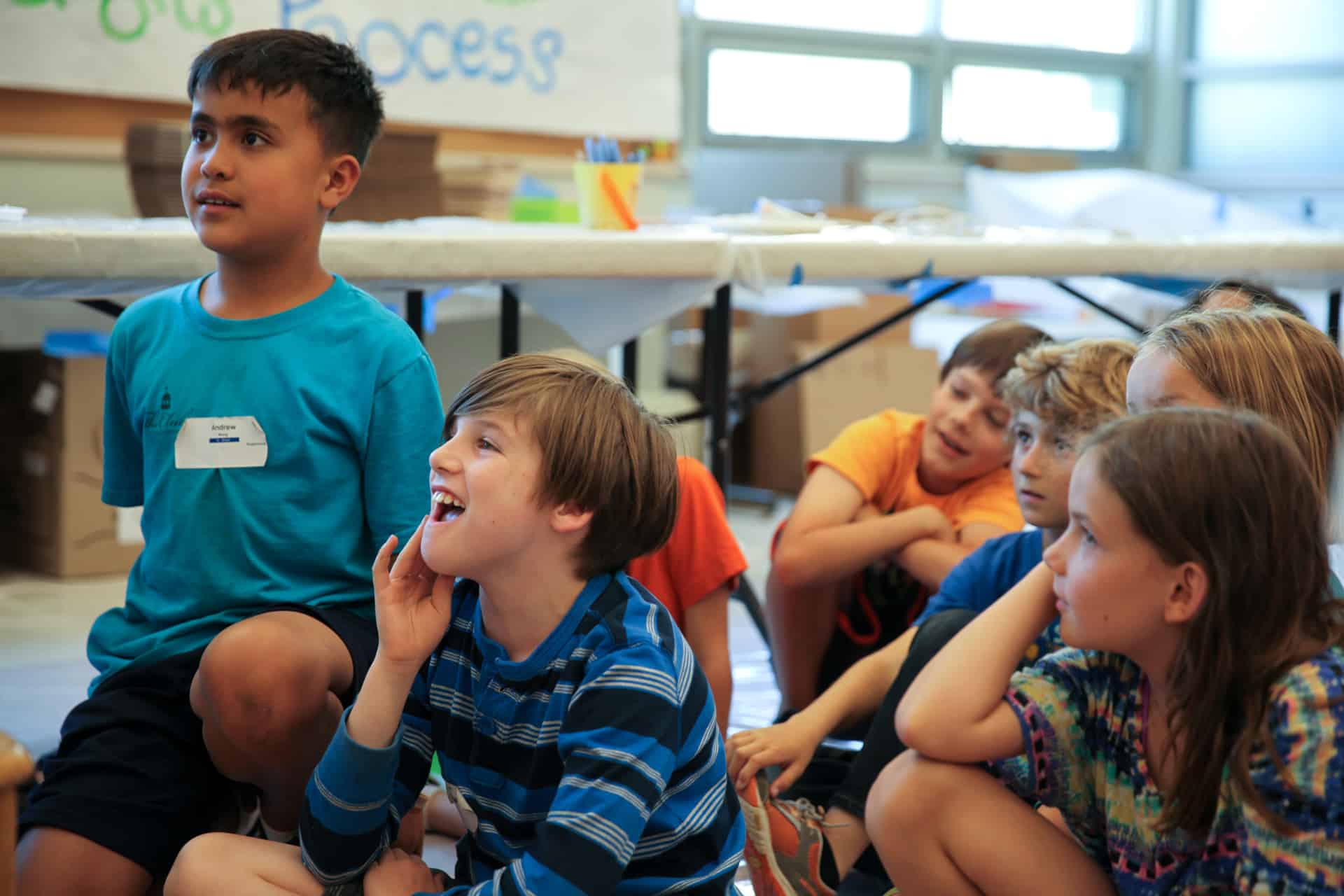
Our Top Ten Phrases for Building Confidence In Your Kids:
???? I’d love to hear all about what you’re working on / I’m interested in hearing all about your idea
???? I noticed how you turned an idea into reality
???? You’re allowed to change your mind
???? You’ve got this
???? I can see that all your practice is leading to a lot of progress
????Your hard work really paid off – way to be determined!
???? You did a really kind thing
???? I’m proud of you
???? You’ve improved so much
???? You tried something new to you – that was so courageous!
—
At Galileo, we’re passionate about building our campers’ self-esteem by embracing failure and learning from mistakes, all while having a ton of fun. If you’re interested in learning more about our art, science, and outdoor summer camps, click the button below to find a location near you. ????
